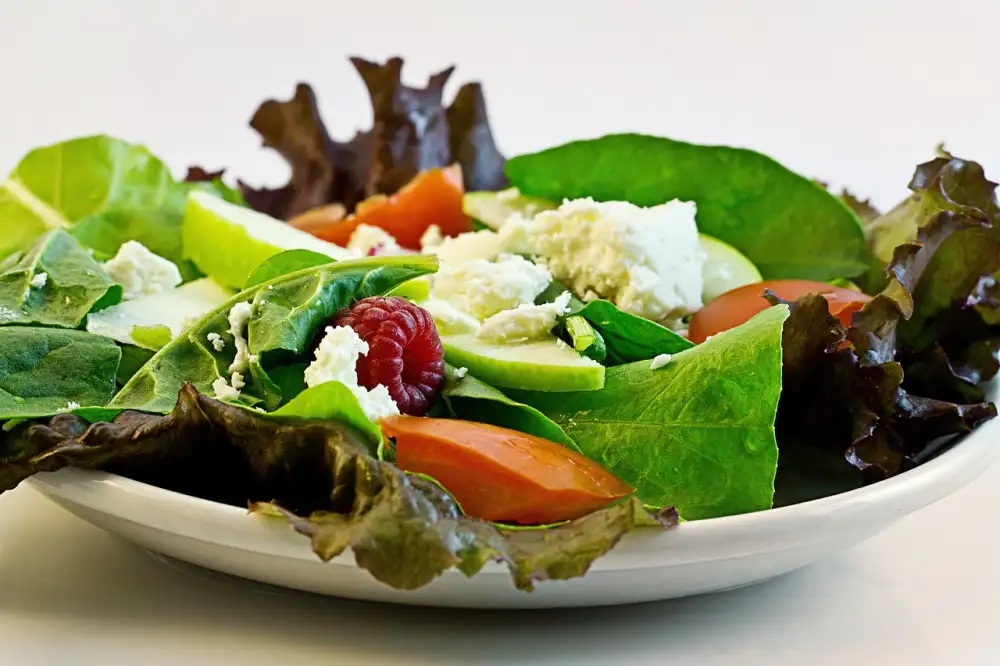Delicious and Nutritious Weight Loss Meals: Fuel Your Journey to a Healthier You

- Importance of a Balanced Diet for Weight Loss
- Incorporating Lean Proteins in Weight Loss Meals
- Including Fiber-rich Foods for Satiety and Digestive Health
- Choosing Healthy Fats for Nutritional Value and Sustained Energy
- Emphasizing Whole Grains for Sustained Fullness
- Incorporating a Variety of Fruits and Vegetables for Essential Nutrients
- Portion Control and Mindful Eating for Weight Management
- Hydration and its Role in Weight Loss
When embarking on a weight loss journey, it is essential to fuel your body with delicious and nutritious meals. These meals not only promote weight loss but also provide the necessary nutrients for a healthier you. By making smart choices and incorporating the right ingredients, you can create meals that are both satisfying and beneficial for your weight loss goals. In this article, we will explore the importance of a balanced diet, lean proteins, fiber-rich foods, healthy fats, whole grains, fruits and vegetables, portion control, mindful eating, hydration, and creating meals that are both delicious and nutritious. So let's dive in and discover how to fuel your journey to a healthier you!
Importance of a Balanced Diet for Weight Loss
A balanced diet is crucial for successful weight loss. It provides the necessary nutrients while ensuring you consume fewer calories. A well-balanced meal plan includes a variety of food groups, such as lean proteins, fiber-rich foods, healthy fats, whole grains, fruits, and vegetables. This combination helps regulate blood sugar levels, boosts metabolism, and keeps you feeling satisfied. By focusing on balance, you can achieve sustainable weight loss and improve overall health.
Incorporating Lean Proteins in Weight Loss Meals
Incorporating lean proteins in weight loss meals is crucial for several reasons. Firstly, protein is known to be more satiating than carbohydrates or fats, meaning it can help you feel fuller for longer and reduce cravings. Secondly, protein plays a vital role in building and repairing muscles, which is especially important during weight loss when the body may be breaking down muscle tissue for energy. Lastly, including lean proteins in your meals can help boost your metabolism and increase calorie burning. Opt for sources such as skinless chicken breast, fish, tofu, beans, and Greek yogurt to add healthy and satisfying protein to your weight loss meals.
Including Fiber-rich Foods for Satiety and Digestive Health
Including fiber-rich foods in your weight loss meals is essential for both satiety and digestive health. Fiber helps to keep you feeling full for longer periods of time, reducing the chances of overeating or snacking on unhealthy foods. It also aids in digestion by promoting regular bowel movements and preventing constipation. Some excellent sources of fiber include whole grains, legumes, fruits, vegetables, and nuts. Incorporating these foods into your meals will not only provide you with the necessary nutrients but also help you achieve your weight loss goals in a healthy and sustainable way.
Choosing Healthy Fats for Nutritional Value and Sustained Energy
When it comes to weight loss meals, choosing the right types of fats is crucial. While it may be tempting to eliminate fats altogether, they are actually an essential part of a balanced diet. Healthy fats provide important nutrients and contribute to sustained energy levels throughout the day.
Instead of opting for saturated or trans fats found in processed and fried foods, focus on incorporating sources of monounsaturated and polyunsaturated fats into your meals. These include avocados, nuts, seeds, olive oil, and fatty fish like salmon.
These healthy fats not only add flavor and richness to your meals but also provide essential omega-3 fatty acids that support heart health and reduce inflammation in the body. They can also help you feel more satisfied after a meal, preventing unnecessary snacking or overeating.
Remember that while healthy fats are beneficial for weight loss, moderation is key. They are still high in calories, so be mindful of portion sizes. Aim to include a small amount of healthy fat in each meal to reap their nutritional benefits without going overboard on calories.
Emphasizing Whole Grains for Sustained Fullness
Emphasizing whole grains in your weight loss meals is essential for sustained fullness and energy. Whole grains, such as brown rice, quinoa, and whole wheat bread, are rich in fiber and nutrients that promote satiety. They take longer to digest, keeping you feeling fuller for longer periods of time. Additionally, whole grains provide a steady release of energy, preventing blood sugar spikes and crashes that can lead to cravings. Incorporating whole grains into your meals not only adds a delicious nutty flavor but also helps you stay satisfied throughout the day.
Incorporating a Variety of Fruits and Vegetables for Essential Nutrients
Incorporating a variety of fruits and vegetables in your weight loss meals is essential for obtaining essential nutrients. Fruits and vegetables are packed with vitamins, minerals, and antioxidants that support overall health. They also provide fiber, which aids in digestion and promotes feelings of fullness. Including a colorful assortment of fruits and vegetables not only adds flavor and texture to your meals but also ensures you are getting a wide range of nutrients necessary for optimal well-being. Whether it's adding leafy greens to your salads or enjoying a rainbow of fruits as snacks, make sure to include plenty of fruits and vegetables in your weight loss journey.
Portion Control and Mindful Eating for Weight Management
Portion control and mindful eating play a crucial role in weight management. It's not just about what we eat, but also how much we eat. By being mindful of our portion sizes, we can ensure that we are consuming the right amount of calories to support our weight loss goals. One way to practice portion control is by using smaller plates and bowls, which can trick our minds into thinking we are eating more than we actually are. Another helpful tip is to listen to our body's hunger and fullness cues. Eating slowly and savoring each bite allows us to better recognize when we are satisfied, preventing overeating. Additionally, paying attention to the quality of our food choices can also aid in portion control. Opting for nutrient-dense foods that are high in fiber and protein can help keep us feeling fuller for longer periods of time, reducing the temptation to overeat. By practicing portion control and mindful eating, we can create a healthier relationship with food and achieve long-term weight management success.
Hydration and its Role in Weight Loss
Hydration plays a crucial role in weight loss. Drinking an adequate amount of water helps to boost metabolism, which can aid in burning calories. Additionally, staying hydrated can reduce feelings of hunger and prevent overeating. It is recommended to drink at least 8 glasses of water per day, but this may vary depending on individual needs. To add flavor and variety, infuse your water with fruits or herbs. Remember, proper hydration is not only essential for weight loss but also for overall health and well-being.
In conclusion, creating delicious and nutritious weight loss meals is not only possible but also essential for achieving your health goals. By incorporating lean proteins, fiber-rich foods, healthy fats, whole grains, and a variety of fruits and vegetables, you can create meals that are both satisfying and nourishing. Remember to practice portion control and mindful eating to manage your weight effectively. And don't forget to stay hydrated throughout the day to support your weight loss journey. With a balanced diet and mindful choices, you can fuel your body with the nutrients it needs while enjoying flavorful meals along the way.
Published: 19. 12. 2023
Category: Health



